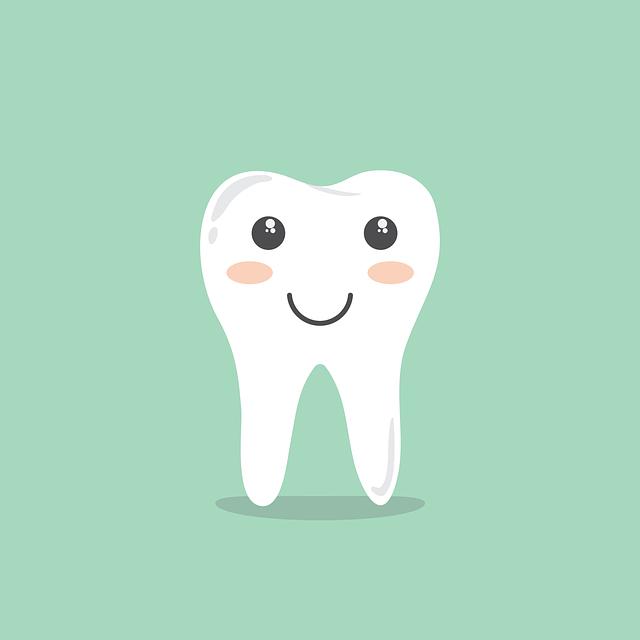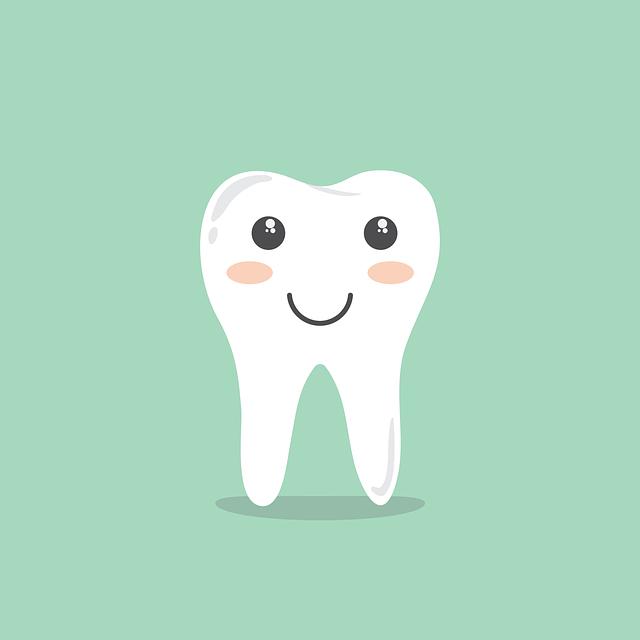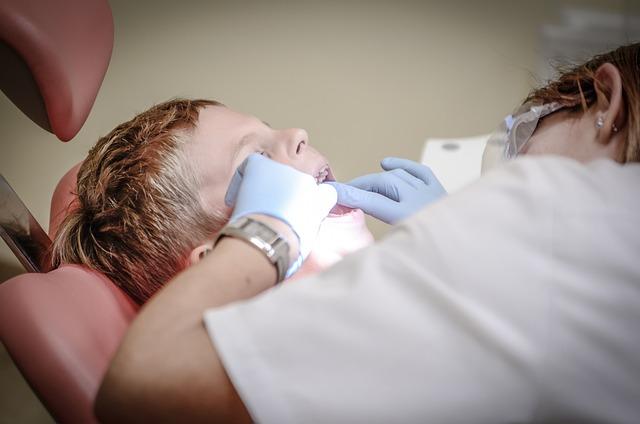Is Warm Salt Water Good for Teeth? Dental Pros and Cons
When it comes to oral health, we are constantly bombarded with a multitude of home remedies and quick fixes. One such remedy that has gained popularity is warm salt water. But before you start swishing it around in your mouth, it’s important to separate fact from fiction. In this article, we will explore the dental pros and cons of using warm salt water as a mouthwash, providing you with a confident and knowledgeable insight into whether this age-old remedy truly benefits your teeth. So, let’s dive into the sea of dental science and uncover the truth about warm salt water’s impact on your oral health.
1. The Benefits of Warm Salt Water for Dental Health: Exploring the Pros and Cons
Warm salt water has been used for centuries as a natural remedy for various health issues, including dental problems. Here, we will explore the pros and cons of using warm salt water for dental health.
Pros of using warm salt water for dental health:
- Natural antibacterial properties: Salt has natural antibacterial properties that can help kill harmful bacteria in the mouth, reducing the risk of infections and gum diseases.
- Reduces inflammation: Warm salt water can help reduce inflammation and swelling in the gums, providing relief from discomfort and pain.
- Relieves sore throat: Gargling warm salt water can also provide temporary relief for a sore throat, which is often associated with dental problems.
- Promotes healing: Salt water can help stimulate the flow of blood to the gums, which can aid in the healing process of minor oral injuries or surgeries.
Cons of using warm salt water for dental health:
- Not a substitute for professional dental care: Although warm salt water can provide temporary relief, it should not replace regular dental check-ups and professional treatments for long-term oral health.
- May cause dryness: Excessive use of salt water rinses can lead to dryness in the mouth, which can contribute to bad breath and other oral health issues.
- Individual sensitivity: Some individuals may be sensitive to salt or experience discomfort when using salt water rinses. It is important to discontinue use if any adverse reactions occur.
Overall, warm salt water can be a useful addition to your dental care routine, providing temporary relief and promoting oral health. However, it is crucial to consult with your dentist to determine the appropriate usage and to address any underlying dental issues.

2. An In-Depth Look at the Effects of Warm Salt Water on Teeth: Weighing the Dental Pros and Cons
Salt water has long been used as a remedy for various dental issues, but what are the actual effects on our teeth? Let’s delve into the dental pros and cons of warm salt water.
Pros:
1. Natural Antiseptic: Warm salt water acts as a natural antiseptic, helping to kill bacteria and reduce the risk of infections in the mouth.
2. Soothes Mouth Sores: Rinsing with warm salt water can provide relief for mouth sores, such as canker sores or gum irritation, by reducing inflammation and promoting healing.
3. Reduces Bad Breath: Salt water can help neutralize odors and freshen breath by inhibiting the growth of bacteria responsible for causing bad breath.
Cons:
1. Enamel Erosion: While warm salt water is generally safe to use, excessive rinsing or using a highly concentrated salt solution can lead to enamel erosion over time. It is important to use the recommended ratio of salt to water and not exceed the recommended frequency of rinsing.
2. Dry Mouth: Salt water rinses can sometimes cause temporary dryness in the mouth. If this occurs, it is advisable to drink water to stay hydrated or use saliva substitutes to alleviate discomfort.
3. Potential Staining: Prolonged use of warm salt water rinses may lead to tooth staining, especially if the salt concentration is too high. It is recommended to consult a dentist for proper guidance on the ideal salt concentration and frequency of use.
In conclusion, warm salt water can provide several dental benefits such as its natural antiseptic properties and soothing effects on mouth sores. However, it is crucial to follow the recommended guidelines to avoid potential enamel erosion, dry mouth, or tooth staining.
3. Is Warm Salt Water an Effective Remedy for Dental Care? Insights into the Pros and Cons
Warm salt water has long been touted as a natural and inexpensive remedy for dental care. While it does offer certain benefits, it is important to weigh the pros and cons before incorporating it into your oral hygiene routine. Here, we provide insights into the advantages and disadvantages of using warm salt water for dental care.
Pros:
- Natural antibacterial properties: Salt has antibacterial properties that can help kill harmful bacteria in the mouth, reducing the risk of infections and gum diseases.
- Reduces inflammation: Gargling with warm salt water can help reduce inflammation and soothe sore gums or mouth ulcers.
- Easy to prepare: A warm salt water solution can be easily prepared at home by dissolving a teaspoon of salt in a cup of warm water.
Cons:
- Potential for overuse: While warm salt water can be beneficial in moderation, excessive use may lead to dry mouth or irritation of the oral tissues.
- Not a substitute for regular dental care: While warm salt water can provide temporary relief, it should not replace regular brushing, flossing, and professional dental care.
- Individual sensitivities: Some individuals may be allergic to salt or have sensitivities that can cause adverse reactions, so it’s important to be cautious and discontinue use if any negative effects occur.
Considering the pros and cons, warm salt water can be a valuable addition to your dental care routine when used appropriately. However, it is always recommended to consult with your dentist before incorporating any new remedies into your oral hygiene practices.

4. Understanding the Potential Benefits of Warm Salt Water for Teeth: A Dental Perspective
As dental professionals, we are frequently asked about the potential benefits of warm salt water for teeth. While warm salt water rinses are not a substitute for regular oral hygiene practices, they can provide some advantages when incorporated into a comprehensive dental care routine. Here are a few reasons why warm salt water rinses may be beneficial:
- Promotes healing: Warm salt water has antimicrobial properties that can help alleviate oral infections, reduce inflammation, and promote the healing of wounds in the mouth. It can be particularly useful after dental procedures or if you have a sore or irritated throat.
- Relieves discomfort: Salt water rinses can help relieve temporary discomfort caused by canker sores, gum irritation, or minor toothaches. The warm solution can soothe the affected area and provide temporary relief.
- Reduces bacteria: Salt is a natural disinfectant with the ability to reduce the number of bacteria in the mouth. Regular salt water rinses can assist in maintaining oral hygiene by reducing harmful bacteria and preventing dental plaque buildup.
While warm salt water rinses offer these potential benefits, it’s important to note that they are not a substitute for professional dental care. It’s always recommended to consult with your dentist for personalized advice on maintaining good oral health.
5. Examining the Advantages and Disadvantages of Using Warm Salt Water for Dental Hygiene
Using warm salt water for dental hygiene has been a common practice for centuries. This natural remedy offers both advantages and disadvantages that should be carefully considered before incorporating it into your oral care routine.
Advantages:
- Effective in reducing inflammation and gum swelling.
- Helps to heal mouth sores and promote faster recovery.
- Natural antiseptic properties can kill bacteria and prevent infections.
- Cost-effective and easily accessible, as salt is readily available in most households.
Disadvantages:
- May cause a temporary increase in tooth sensitivity due to the salt’s abrasive nature.
- Excessive use or concentration of salt water can lead to dry mouth and exacerbate existing oral conditions.
- Not a substitute for regular dental care, as it cannot remove plaque or prevent cavities.
While warm salt water can provide temporary relief and aid in oral health maintenance, it is important to consult with a dental professional to determine the best dental hygiene practices for your specific needs.
6. Warm Salt Water for Teeth: Evaluating the Pros and Cons from a Dental Expert’s Point of View
As a dental expert, I have evaluated the use of warm salt water for oral health, weighing its pros and cons. Here, I present my findings:
- Pros:
- Soothing effect: Rinsing with warm salt water can provide temporary relief for minor gum irritations, toothaches, or mouth sores.
- Natural antiseptic: Salt has mild antiseptic properties that can help reduce bacteria in the mouth and promote healing.
- Inexpensive and easily accessible: Warm salt water can be easily prepared at home using common kitchen ingredients.
- Cons:
- Temporary solution: While warm salt water can provide temporary relief, it is not a substitute for professional dental care. It is essential to consult a dentist for any persistent dental issues.
- Potential side effects: Overusing salt water rinses may lead to dry mouth, which can contribute to dental problems like bad breath or increased risk of cavities.
- Effectiveness varies: The effectiveness of warm salt water rinses may vary depending on individual circumstances and the specific dental concern.
Ultimately, warm salt water can be a useful adjunct to maintaining oral hygiene, but it should not replace regular dental check-ups and professional advice. It is always recommended to consult with your dentist before relying solely on home remedies for dental care.
7. The Role of Warm Salt Water in Oral Health: A Comprehensive Analysis of the Pros and Cons
In this comprehensive analysis, we will delve into the pros and cons of using warm salt water as a part of your oral health routine. While warm salt water has been a popular home remedy for various dental issues for centuries, it is essential to understand its benefits and drawbacks.
Pros:
- Natural Antiseptic: Warm salt water acts as a natural antiseptic, helping to kill bacteria and reduce inflammation in the mouth.
- Relieves Pain: Rinsing with warm salt water can provide temporary relief from toothaches, gum sores, and other oral discomforts.
- Cost-Effective: Salt is readily available and inexpensive, making warm salt water an affordable option for maintaining oral health.
Cons:
- Temporary Solution: While warm salt water can provide temporary relief, it does not address the underlying cause of dental issues and should not replace professional dental care.
- Potential Side Effects: Overuse or excessive concentration of salt in the solution may lead to dryness, irritation, or a burning sensation in the mouth.
- Limited Effectiveness: Warm salt water may not effectively combat severe bacterial infections or advanced dental problems, requiring additional dental treatments.
Before incorporating warm salt water into your oral health routine, it is advisable to consult with your dentist to ensure it is appropriate for your specific needs and to determine the correct concentration and frequency of use. While warm salt water can provide some benefits, it is crucial to remember that professional dental care and regular check-ups are essential for maintaining optimal oral health.
8. Is Warm Salt Water a Game-Changer for Dental Care? Unveiling the Pros and Cons
Warm salt water, often hailed as a natural remedy for dental care, has gained significant attention in recent years. While its benefits cannot be overlooked, it is important to weigh the pros and cons before incorporating it into your oral hygiene routine. Here, we delve into the advantages and disadvantages of using warm salt water for dental care, helping you make an informed decision.
Pros of Using Warm Salt Water for Dental Care:
- Natural Antibacterial Properties: Warm salt water acts as a natural disinfectant, helping to kill harmful bacteria in the mouth. It can reduce the risk of infections, gum diseases, and bad breath.
- Promotes Healing: The warm salt water solution can aid in healing oral wounds, ulcers, and canker sores by reducing inflammation and speeding up the recovery process.
- Easy and Cost-Effective: This dental care technique requires minimal effort and can be easily prepared at home with readily available ingredients. It is also an affordable option compared to some commercial oral care products.
Cons of Using Warm Salt Water for Dental Care:
- Not a Substitute for Regular Oral Care: While warm salt water can offer temporary relief and assist in maintaining oral health, it should not replace brushing, flossing, and routine dental check-ups. These practices remain crucial for comprehensive dental care.
- Potential Side Effects: Overuse of warm salt water rinses can lead to dry mouth and may cause an imbalance in oral bacteria. It is advisable to use this remedy in moderation and consult a dental professional if any adverse effects occur.
- Taste and Discomfort: Some individuals may find the taste of warm salt water unpleasant, and prolonged rinsing can cause discomfort, especially for those with sensitive teeth or mouth sores.
Ultimately, warm salt water can be a valuable addition to your dental care routine, but it should be used in conjunction with proper oral hygiene practices and under the guidance of a dental professional. Being aware of its pros and cons allows you to make an informed decision that best suits your individual needs.
9. Warm Salt Water: A Natural Remedy for Dental Health or Just a Myth? Dissecting the Pros and Cons
Saltwater rinses have been used for centuries as a natural remedy for various health issues, including dental problems. But is warm salt water really effective for maintaining good oral health, or is it just an old wives’ tale? Let’s take a closer look at the pros and cons.
Pros of Warm Salt Water Rinses:
- Kills bacteria: Saltwater has antimicrobial properties that can help kill bacteria in the mouth, reducing the risk of infections and promoting healing.
- Relieves pain and inflammation: Gargling with warm salt water can provide temporary relief from toothaches, gum soreness, and other oral discomforts.
- Reduces bad breath: Saltwater can neutralize odor-causing bacteria, freshening your breath naturally.
- Easy and affordable: Saltwater rinses are simple to prepare at home using common kitchen ingredients, making it a cost-effective alternative to commercial mouthwashes.
Cons of Warm Salt Water Rinses:
- Not a cure-all: While saltwater rinses can provide temporary relief, they are not a substitute for professional dental care. Serious dental issues require the expertise of a dentist.
- Potential side effects: Overusing saltwater rinses or using a solution that is too concentrated may irritate the mouth, causing dryness, soreness, or even ulcers.
- Limited effectiveness: Saltwater rinses are most beneficial for minor oral problems and as a preventive measure, but they may not be as effective in treating complex dental issues or advanced gum disease.
While warm salt water rinses can be a helpful addition to your oral hygiene routine, it’s important to remember that they should not replace regular brushing, flossing, and professional dental check-ups. If you have any concerns about your dental health, it’s always best to consult with a qualified dentist for proper diagnosis and treatment.
10. The Science Behind Warm Salt Water for Teeth: Delving into the Pros and Cons
Warm salt water has long been used as a natural remedy for various dental problems. Let’s delve into the pros and cons of using warm salt water for teeth, backed by scientific evidence.
Pros:
- Reduces inflammation: Warm salt water acts as a natural antiseptic and helps reduce inflammation in the gums. It can provide relief from gum infections, gingivitis, and canker sores.
- Relieves pain: The warm water can help soothe toothaches and ease discomfort caused by oral injuries or dental procedures.
- Removes debris: Salt water can effectively loosen and remove food particles stuck between teeth, reducing the risk of decay and improving overall oral hygiene.
- Cost-effective and easily accessible: Warm salt water is a simple and inexpensive remedy that can be easily prepared at home.
Cons:
- Potential for overuse: While warm salt water can be beneficial in moderation, excessive use may lead to negative effects such as dry mouth or increased tooth sensitivity.
- Not a substitute for professional dental care: While warm salt water can provide temporary relief, it is important to consult a dentist for proper diagnosis and treatment of dental issues.
It’s important to note that warm salt water is not a magical cure-all, but it can be a helpful addition to your oral care routine. As with any home remedy, it’s always best to consult with your dentist before using warm salt water for dental issues.
Frequently Asked Questions
Q: Is warm salt water good for teeth?
A: Yes, warm salt water can have several dental benefits when used properly.
Q: What are the pros of using warm salt water for dental care?
A: Warm salt water can help to reduce inflammation, soothe oral tissues, and promote healing after dental procedures.
Q: How does warm salt water reduce inflammation in the mouth?
A: The salt in warm salt water has natural anti-inflammatory properties that can help to reduce swelling and discomfort in the gums.
Q: Can warm salt water be used as a mouthwash?
A: Yes, warm salt water can be used as a natural mouthwash to help kill bacteria and prevent infections in the mouth.
Q: Does warm salt water help with oral hygiene?
A: Warm salt water can help to remove food particles and bacteria from the mouth, promoting better oral hygiene when used as part of a regular dental care routine.
Q: Are there any cons to using warm salt water for teeth?
A: While warm salt water can provide numerous benefits, it is important to use it correctly and in moderation. Overuse or using a salt concentration that is too high can potentially damage tooth enamel.
Q: How often should warm salt water be used for dental care?
A: It is generally recommended to use warm salt water for dental care a few times a week or as advised by a dental professional. It should not replace regular brushing and flossing.
Q: Can warm salt water replace commercial mouthwashes?
A: Warm salt water can be a natural alternative to commercial mouthwashes, but it may not provide all the benefits that specific dental mouthwashes offer, such as fluoride protection or targeting specific oral issues.
Q: Is warm salt water suitable for everyone?
A: Warm salt water is generally safe for most individuals, but it may not be suitable for those with certain medical conditions or allergies. It is always best to consult with a dentist or healthcare professional before using it.
Q: What is the correct way to use warm salt water for dental care?
A: To use warm salt water for dental care, dissolve half a teaspoon of salt in warm water and swish the solution in your mouth for about 30 seconds. Spit it out and rinse your mouth thoroughly with plain water.
In Retrospect
In conclusion, the question of whether warm salt water is good for teeth is one that has been debated within the dental community. While warm salt water can provide some benefits, it is important to consider the pros and cons before incorporating it into your dental care routine.
One key takeaway is that warm salt water can help reduce inflammation and promote healing in the mouth. It can also act as a natural disinfectant, killing bacteria that may cause dental issues. However, it is crucial to remember that warm salt water should never replace regular brushing and flossing, as it cannot fully remove plaque and tartar buildup.
Another important point to consider is that warm salt water should be used in moderation. Overusing it can lead to an imbalance in the mouth’s pH levels, potentially causing damage to tooth enamel. It is best to consult with a dental professional to determine the appropriate frequency and concentration of warm salt water rinses for your specific oral health needs.
In summary, warm salt water can offer some benefits for dental health, such as reducing inflammation and disinfecting the mouth. However, it should be used as a complementary method alongside regular oral hygiene practices, rather than a substitute. As always, consulting with a dentist is the best way to ensure you are taking the necessary steps to maintain a healthy smile.






